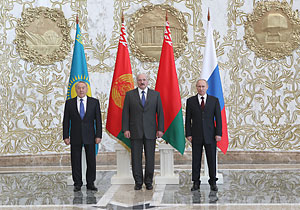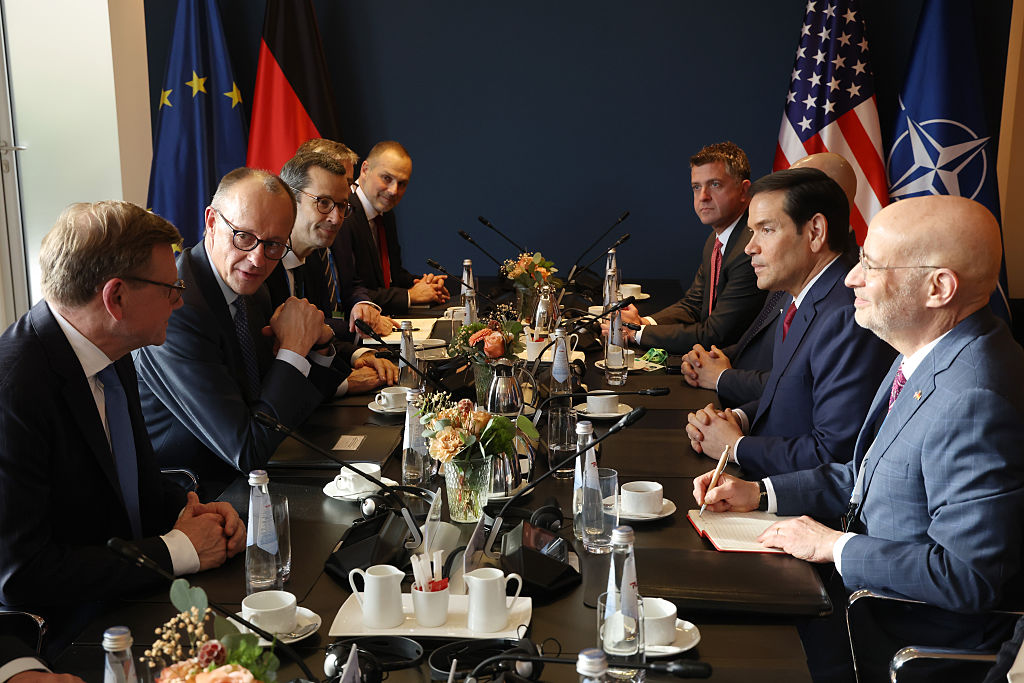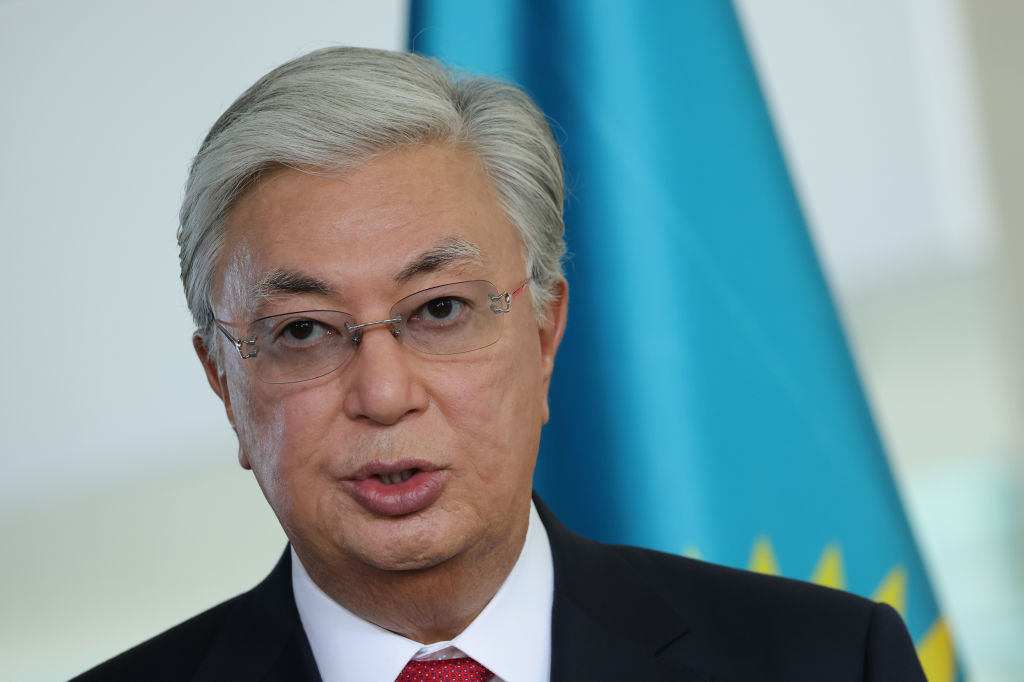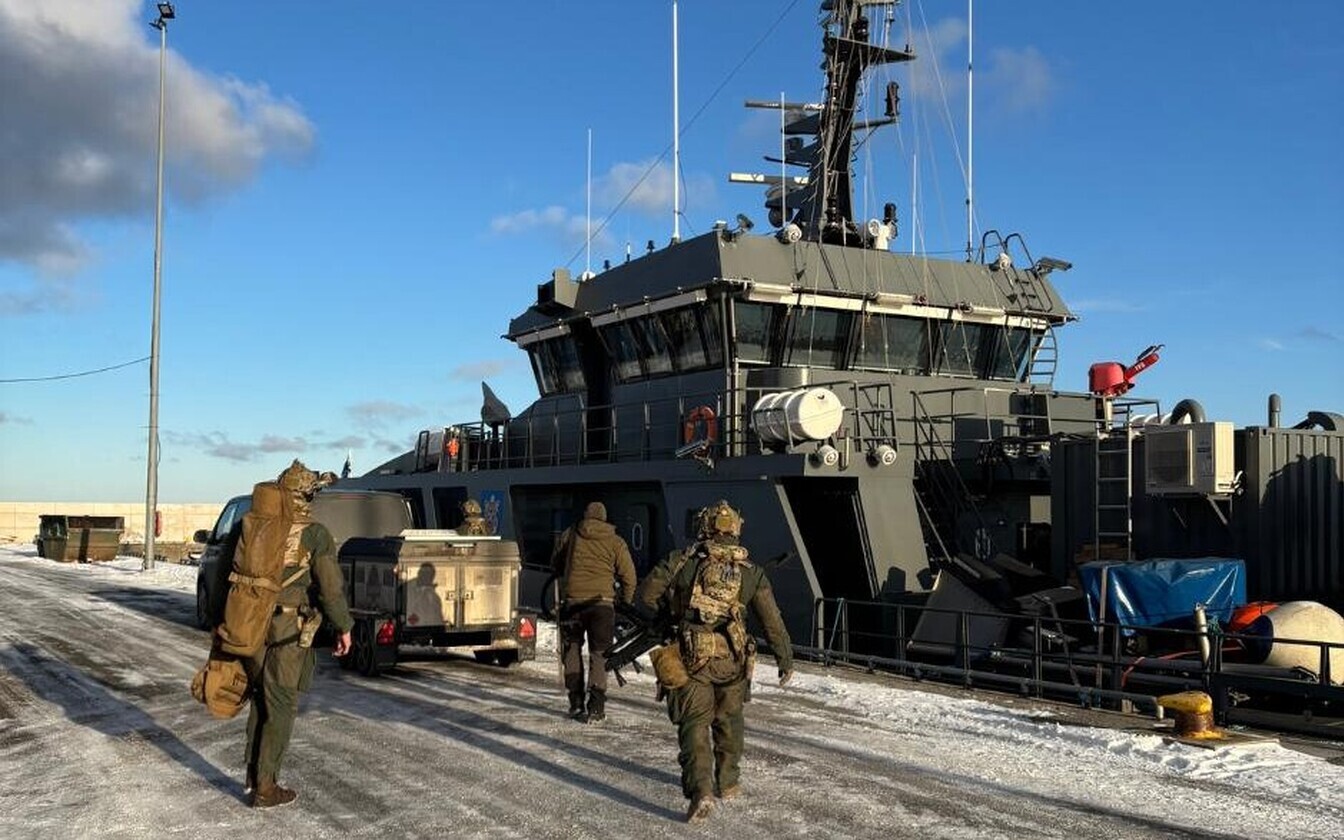
Two Summits and a Military Exercise
Two Summits and a Military Exercise
The postponed Russia-Belarus-Kazakhstan summit took place last Friday (March 20) in Astana, but the program was cut so short that the only point for staging the event appeared to be to confirm President Vladimir Putin’s return to business as usual (Kommersant, March 21). Presidents Nursultan Nazarbaev and Alyaksandr Lukashenka spent more time together discussing their mutual problems in relations with Russia; and they had good reason to assume that these problems would grow more serious because the European Union, at its recent summit in Brussels, left the sanctions regime against Russia unchanged (RBC, March 20). European leaders expressed differing opinions about the usefulness of sanctions, but nobody was prepared to send Moscow a conciliatory signal amidst the large-scale snap military exercise ordered by Putin last Monday (March 16) and continuing for the whole week (Gazeta.ru, March 17). The need to engage Moscow in constructive dialogue is real and growing ever more pressing, but both Russia’s closest allies and its concerned neighbors find it difficult to accommodate the country’s maverick behavior and erratic leadership.
Belarus and Kazakhstan are primarily concerned about fallout from the Russian economic crisis, but also seek to benefit from the sanctions in order to expand their agricultural exports (Nezavisimaya Gazeta, March 20). Lukashenka is also eager to take advantage of Russia’s confrontation with the West to secure a quiet relaxation of the sanctions that were previously imposed against his regime—although, he sees no need to simultaneously relax the heavy police oversight of Belarus’s domestic opposition (Novaya Gazeta, March 18). Putin tried to invigorate the struggling Eurasian integration project by recycling the idea of introducing a common currency. But Lukashenka and Nazarbaev likely suspect that they would not have an equal say in this hypothetic financial union, which looks particularly far-fetched considering the Russian ruble’s current shaky status (Moskovsky Komsomolets, March 20). Their doubts in Putin’s leadership are probably increased due to Russia’s indifferent reaction to the escalation of fighting in Karabakh, even though Armenia has been a formal member of the Eurasian Economic Union since the start of this year (Polit.ru, March 20).
The European Union is far from united on the issue of the sanctions regime, and Moscow sought to exploit the divisions, targeting particularly Greece—the obvious weak link in the common course in crisis management (Nezavisimaya Gazeta, March 19). Nevertheless, the proposal to keep the sanctions in place until the Minsk Two agreement is fully implemented has provided an obvious point of departure for forging a solid EU position. And Moscow was particularly irked by Europe’s decision to develop a plan for countering Russia’s campaign of disinformation (Kommersant, March 21). Russian propaganda has, indeed, grown so vicious that special counter-measures are necessary. But in fact, a far more significant outcome of the Brussels summit concerned the first steps in building the Energy Union, which will severely limit Gazprom’s ability to spin its gas-political intrigues (Gazeta.ru, March 20). The EU does not aim to eliminate imports of Russian natural gas, but it wants to insure against attempts by certain suppliers to abuse their monopoly position in regional markets. Thus, Europe seeks to enforce transparent rules of market competition instead of the types of shady deals preferred by the Kremlin (RBC, March 19).
Gazprom’s recent attempts to prevent the deliveries of gas from Poland and Slovakia to Ukraine were both futile and costly. And now the Russian gas giant is compelled to offer a new and reasonable price to Kyiv (Newsru.com, March 19). These losses come on top of Russia’s sharply falling petro-revenues and the agitated lobbying of such privileged corporations as Rosneft for support from the dwindling national reserves instead of delivering their dividends to the state budget (Forbes.ru, March 18). The government has no authority to resist such lobbying, and the arrogant military-industrial complex firmly rejects Moscow’s attempts to evenly distribute the necessary sequestration in budget expenditures. Putin’s reassurances in the forthcoming economic recovery and promises of “amnesty” for homecoming capital are far from convincing for the entrepreneurs who experience increasingly blatant racketeering from the corrupt siloviki (security services personnel) (RBC, March 19). Far more persuasive was the decision of General Motors to cut its losses and stop the production and sales of its Opel and Chevrolet models in Russia because of the contraction of the Russian market by 38 percent as of February 2015, compared to the same period last year (Gazeta.ru, March 20).
Russia’s quickly degrading economy is inimical to projecting power. So demonstrations of Moscow’s military might have to become more and more aggressive to produce the impression of determination to prevail in a confrontation with the risk-averse West. The scope of last week’s snap exercises (see EDM, March 19), for that matter, was increased to 80,000 men and from the Arctic to Sakhalin and Tskhinvali (South Ossetia). But no such war-games are possible in the next couple of months, because this week Putin is to sign the decree on the spring draft, according to which the better trained half of Russia’s soldiers will be released from duty (Rossiiskaya Gazeta, March 21). Nuclear discourse is increasingly employed in support of modest-sized battalions. And the statement of the Russian ambassador to Denmark regarding Danish ships becoming “targets for Russian nuclear missiles” if this Scandinavian country opts to join the US missile defense system, is in tune with Putin’s revelations about strategic nuclear forces having been put on high alert during the Crimean annexation special operation (Newsru.com, March 21).
While Putin may believe in his own infallibility, his courtiers have to persist in reassuring him about the fragility of Western unity. Just another push and a couple more bribes, they argue, will convince some North Atlantic Treaty Organization (NATO) members that Narva or Spitsbergen are not worth fighting for, or to persuade some EU members that the sanctions regime is counter-productive. This split needs to be achieved in the coming weeks, in time for a summer offensive in eastern Ukraine toward Mariupol and Melitopol (opening the land corridor to Crimea) to be condoned at new (Minsk Three) summit—where France and Germany would be tasked with convincing Ukraine that peace has to be paid for with more concessions. This wishful strategizing is not without reason, and it is up to the EU to prove its capacity to stand together—and up to the United States to lead a successful Western rejection of Russia’s tactics of bullying and bluff. Deterring Putin’s Russia is a different and trickier task than containing the Soviet Union, but statesmanship will always prevail over scoundreldom.


